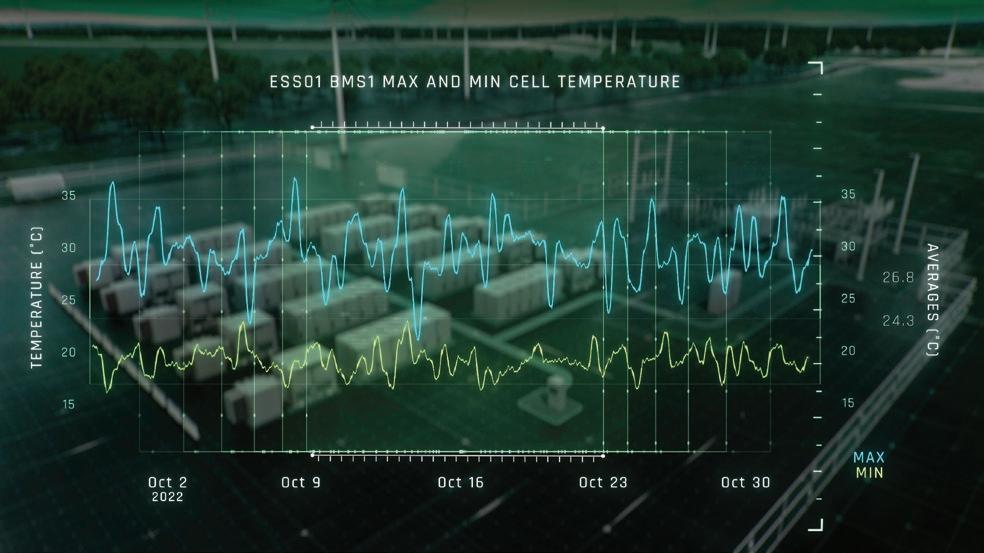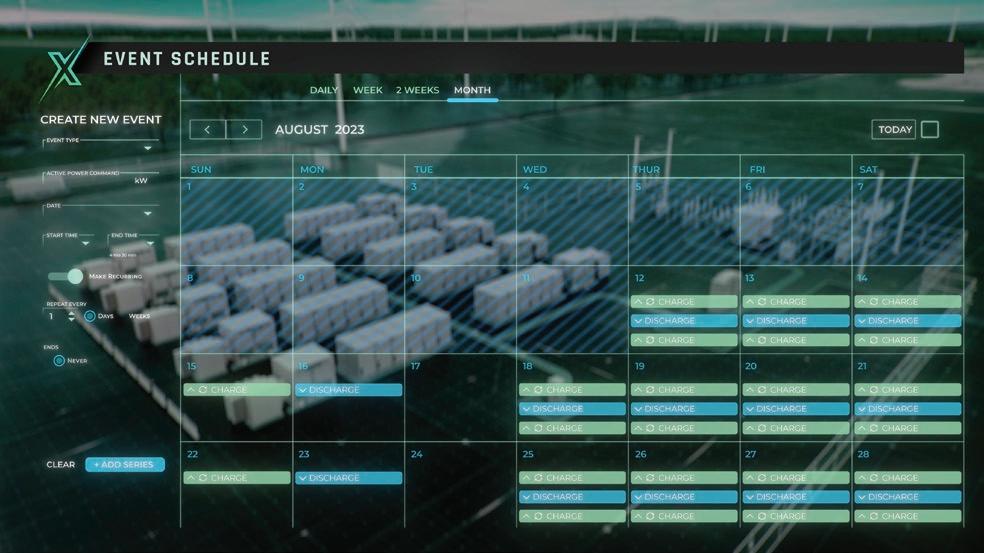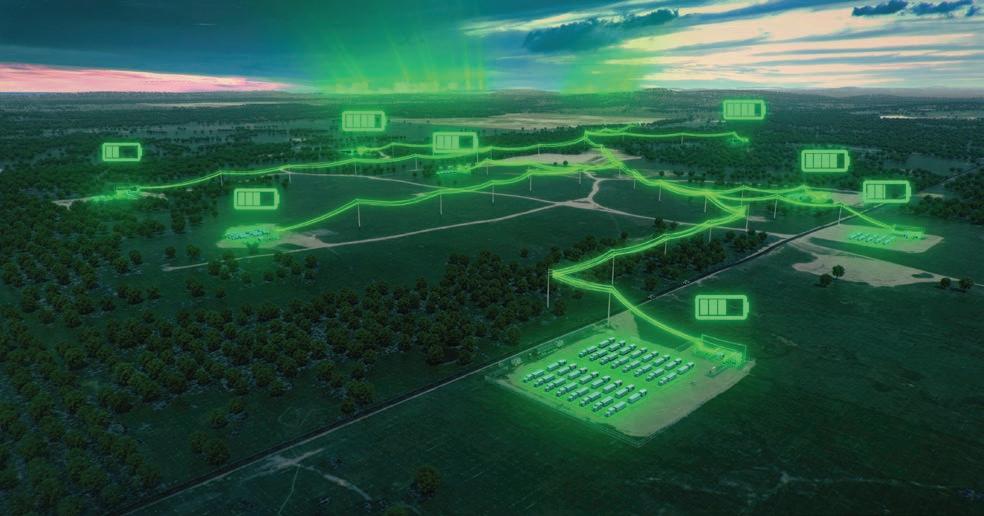
5 minute read
FFRA and ERCOT Ready the Texas Grid
FFRA and ERCOT Ready the Texas Grid
by Brandon Montagne
The energy industry in Texas is a dominant force, both in terms of consumption and production. With the state's unique grid management system overseen by the Electric Reliability Council of Texas (ERCOT), battery storage developers and operators in Texas must adapt to its peculiarities. As ERCOT focuses on immediate power delivery, energy management systems (EMS) play a crucial role in enabling rapid response times for grid stabilization. These systems provide operators with the tools to optimize their energy storage assets and participate in ancillary markets efficiently. This article explores the significance of EMS operating systems in addressing the challenges faced by ERCOT and ensuring readiness for the Texas power grid.
Rapid market expansion
ERCOT’s battery storage market growth can be attributed to several factors. First, ERCOT's focus on enhancing grid stability, especially after the power crisis in 2021, has emphasized the need for flexible and rapid response resources. Battery storage systems offer fast response times and can inject power into the grid within milliseconds, making them ideal for supporting grid stability during peak demand periods.
Second, the growing penetration of renewable energy sources, such as wind and solar, has increased the need for energy storage solutions to address the intermittency of these sources. Battery storage systems can store excess energy during periods of high generation and discharge it when demand is high, effectively balancing the grid and optimizing renewable energy utilization.
Lastly, advancements in battery technology coupled with decreasing costs have made energy storage systems more economically viable. This has attracted investments that have spurred the deployment of battery storage projects in ERCOT, contributing to the market's rapid growth.
Overall, the ERCOT battery storage market is witnessing significant expansion due to its critical role in grid stability, renewable energy integration, and the increasing costeffectiveness of battery storage systems.

FFRA
Following the power crisis of February 2021, ERCOT recognized the need to update its ancillary services market to prepare for periods of increased demand while supporting renewable energy integration. The Fast Frequency Response Advancement (FFRA) project was introduced to enhance grid stability and resilience. FFRA includes the implementation of primary frequency response, fast frequency regulation service, and fast frequency response markets. These markets require quick-responding energy resources, making energy storage systems with advanced operating systems and digital controls crucial for participation.
The implementation timeline for FFRA requirements is an important consideration for battery storage developers and operators. ERCOT has outlined plans to introduce the new ancillary services markets (including FFRA) in a phased manner. In order to capitalize on the opportunities presented by the evolving Texas power grid, it is crucial for energy storage systems to align with the timeline and ensure compliance with the FFRA requirements.

Need for Speed
EMS are vital in enabling energy storage systems to participate in ERCOT's ancillary markets, including the fast frequency response market. These systems offer advanced control algorithms and real-time monitoring capabilities, allowing operators to optimize the charging and discharging of energy storage assets with remarkable speed and accuracy. By analyzing grid conditions, energy demand, and market signals, energy management systems ensure that energy storage systems respond rapidly to frequency changes and supply electricity when needed.
In addition to their speed, EMS enable operators to maximize the value of their energy storage assets. By implementing intelligent algorithms and forecasting techniques, these systems can optimize energy storage utilization, predict energy market prices, and strategically dispatch stored energy to maximize revenue streams. Energy management systems also facilitate seamless integration of renewable energy sources, allowing operators to leverage the full potential of their wind and solar installations.
Under FFRA, the fast frequency response market necessitates energy storage resources that can respond within 30 cycles of a request for power. This rapid response time is critical for maintaining grid stability during sudden changes in supply and demand. Battery storage systems equipped with efficient energy management systems (EMS) are capable of meeting these strict requirements, ensuring seamless participation in the fast frequency response market.

Conclusion
Navigating ERCOT's unique grid management system can be complex, but energy management systems provide operators with the necessary tools and capabilities to streamline their operations and ensure readiness for the Texas power grid. These systems enable operators to participate in ERCOT's ancillary markets, including the fast frequency response market, by delivering rapid response times and optimized energy utilization. As ERCOT undergoes changes to adapt to future grid demands and facilitate renewable energy integration, EMS become increasingly crucial for achieving grid stability and maximizing the value of energy storage assets. By utilizing advanced algorithms, realtime monitoring, and forecasting techniques, operators can respond swiftly to frequency changes, support grid stability, and capitalize on market opportunities. With intelligent, updated energy management systems, operators in Texas can confidently navigate the complexities of ERCOT's grid management system to unlock the full potential of their energy storage assets. Updated operating systems and digital controls provide the necessary foundation for efficient energy storage operations, optimal revenue generation, and the seamless integration of renewable energy sources. As the Texas power grid continues to evolve, EMS will play an integral role in ensuring its reliability, resilience, and readiness for the challenges of the future.
Brandon Montagne is Vice President of Marketing at FlexGen Power Systems, Inc., which designs and operates the software platform enabling today's energy transition.




